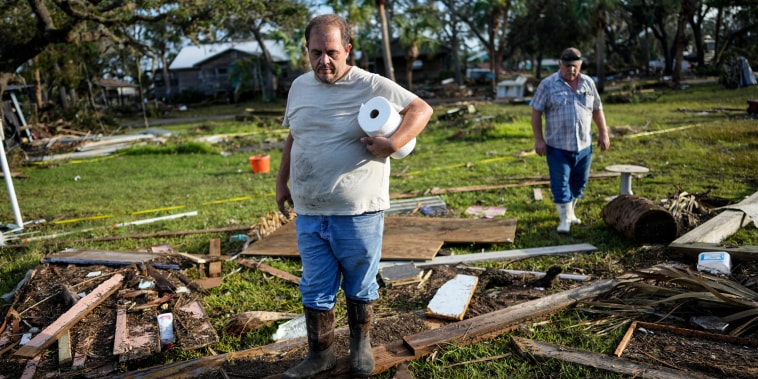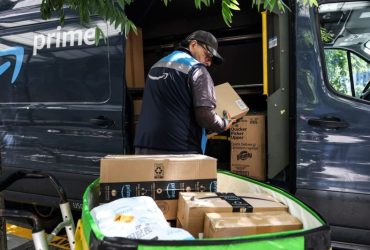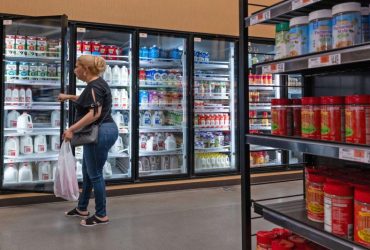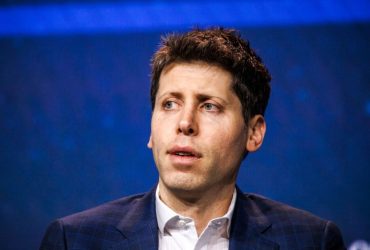CEDAR KEY, Fla. — As cleanup begins in the aftermath of Hurricane Idalia, the storm has served as a stark reminder that Florida’s insurance industry remains in flux.
Idalia made landfall in Florida’s Big Bend just before 8 a.m. Wednesday as a Category 3 hurricane. It killed at least three people in Florida before it battered Georgia and other states on the East Coast as a downgraded tropical storm.
Idalia moved offshore Thursday morning, leaving around 330,000 customers without power in Florida, Georgia and South Carolina.
Powerful storms have regularly pummeled Florida’s coastal communities in recent years. The hurricanes have brought high winds, lashing rains and deadly storm surge. Idalia brought much of the same, and it has forced many homeowners to turn to their insurance policies in hope that repairing their homes and replacing their belongings might be covered.
But many of those homeowners face uncertainty amid the upheaval that has emerged in Florida’s insurance industry in recent years.
Burned rubble where a house stood after a power transformer exploded in the community of Signal Cove in Hudson, Fla., on Wednesday, after Hurricane Idalia made landfall.Miguel J. Rodriguez Carrillo / AFP – Getty Images
A thinning insurance market that is beset by more regular hurricanes has caused insurance policy costs to skyrocket. An average home premium in Florida is about $6,000 per year, according to the Insurance Information Institute, an industry trade organization. The U.S. average is about $1,700.
The state’s insurance industry is preparing to lose four insurers since last year — Farmers Insurance, Bankers Insurance, Centauri Insurance and Lexington Insurance. Farmers Insurance announced just last month that it intends to leave Florida, affecting about 100,000 policy holders, and that it would not be writing new policies.
Still, it appears Florida is better-positioned to handle insurance claims than it was last year after the state’s insurers acquired adequate levels of reinsurance — a reimbursement system that insulates insurers from very high claims.
“With all the weather and hurricane events that have come through, the reinsurance market has hardened on the Florida insurance companies,” said Chris Draghi, who specializes in the state’s insurance market as an associate director at AM Best, a global credit agency. “That’s led to material increases and reinsurance costs, which, of course, then strain bottom line results to afford the same level of protections as in the past.”
That could mean that, as the costs for insurers rise further, Floridians’ premiums will be affected.
Gregory Buck, the president and owner of National Risk Experts Insurance, based in Florida, said that his company’s premiums last year were four times the national average but that those prices are largely based on reinsurers. He expects rates to increase further.
The remains of a destroyed home built atop a platform on piles in Keaton Beach, Fla., on Wednesday during a flight provided by mediccorps.org after Hurricane Idalia passed through.Rebecca Blackwell / AP
“If you look at year on year for the last three to five years, you’re probably talking about between 100 and 300% (in insurance cost increases) depending on where you are and obviously the age and the construction of the homes themselves” Buck said by email. “But absolutely, we are looking at more increases.”
Homeowners in the state said they expect the cost to jump once again, which has led some to consider going without insurance because of the price.
Aimee Firestine stood outside her hotel, the Faraway Inn, in Cedar Key as she said her homeowners insurance rate doubled last year. She said it has left her “thinking about whether you can keep paying for that.”
“That’s one of the issues in Florida is Mother Nature does what it wants and we have to just rebuild and hope insurance can help us out with it,” Firestine said.
The cost of insurance policies could be a major contributing reason that as many as 15% of Florida homeowners are living without property insurance. That is the highest percentage in the country, according to the Insurance Information Institute.
In Florida, 16 severe storms or hurricanes since 2020 have caused $100 billion to $200 billion in damage. That has pushed many in the state to turn to Citizens Property Insurance Corp., the state-backed insurer of last resort, which has quickly become Florida’s fastest-growing insurer.
The company now has more than 1.4 million policies, centered largely in southeast Florida, up precipitously from 500,000 in 2019. It now covers roughly 1 in 8 Florida households.
It is a reflection of how private insurers have left the state as the storms walloping Florida grow in number and strength, said Amy Bach, the executive director of United Policyholders, a nonprofit consumer advocacy group. Because the agency is a state-run entity, it could also have an effect on taxpayer dollars.
“As they retreat and government is having an increasing role, that basically translates into taxpayers,” Bach said. “So really, we’re talking about a huge shift in risk-bearing from the private sector to the public, and it’s a big deal.”
Four new insurance companies will join the Florida market next year after legislative reforms designed to promote market stability were passed and signed into law, which could help address the problem. It is unclear, however, what market share the companies might be able to soak up or what their rates might be.
A flooded house in Crystal River, Fla., on Thursday after Hurricane Idalia made landfall.Chandan Khanna / AFP – Getty Images
Aggravating the problem, 82% of Floridians do not have flood insurance, which is typically operated by the National Flood Insurance Program, a federal program run by the Federal Emergency Management Agency. Congress created the program in 1968 because of a similar issue — the lack of private insurers in flood-prone areas.
Analysts and experts said few people purchase flood insurance because many do not realize that most homeowners or hurricane policies do not cover flooding, even though hurricanes are a key threat to Florida’s low-lying areas.
Hundreds of thousands of Florida homes lie in flood-risk areas that are not designated as such by the federal government, leaving many homeowners vulnerable to massive out-of-pocket costs for damage after hurricanes.
More than 785,000 properties in the state face flood hazards but are not recognized as high risks in FEMA’s flood maps, according to data from the First Street Foundation, a nonprofit research group.
The First Street Foundation said that it factors in heavy rainfall, the impact of small waterways’ flooding and climate change and that it updates its models annually, while FEMA does not. On its website, FEMA said it “consistently releases new flood maps and data, giving communities across America access to helpful, authoritative data that they can use to make decisions about flood risk.”
Meanwhile, Mark Friedlander, a spokesman for the Insurance Information Institute, said Florida has major flood events year-round.
“We’re going to see very significant flood losses from the hurricane this week, and only a small percentage of homeowners have that coverage,” he said.
In Taylor County, where Idalia made landfall, for example, only 5.4% of homeowners have flood insurance, Friedlander said. The county, in the Big Bend area of Florida, is home to about 21,000 people, according to the latest census data.
“That entire community is under water,” Friedlander said.
Gabe Gutierrez reported from Cedar Key. Phil McCausland and Melissa Chan reported from New York City.







